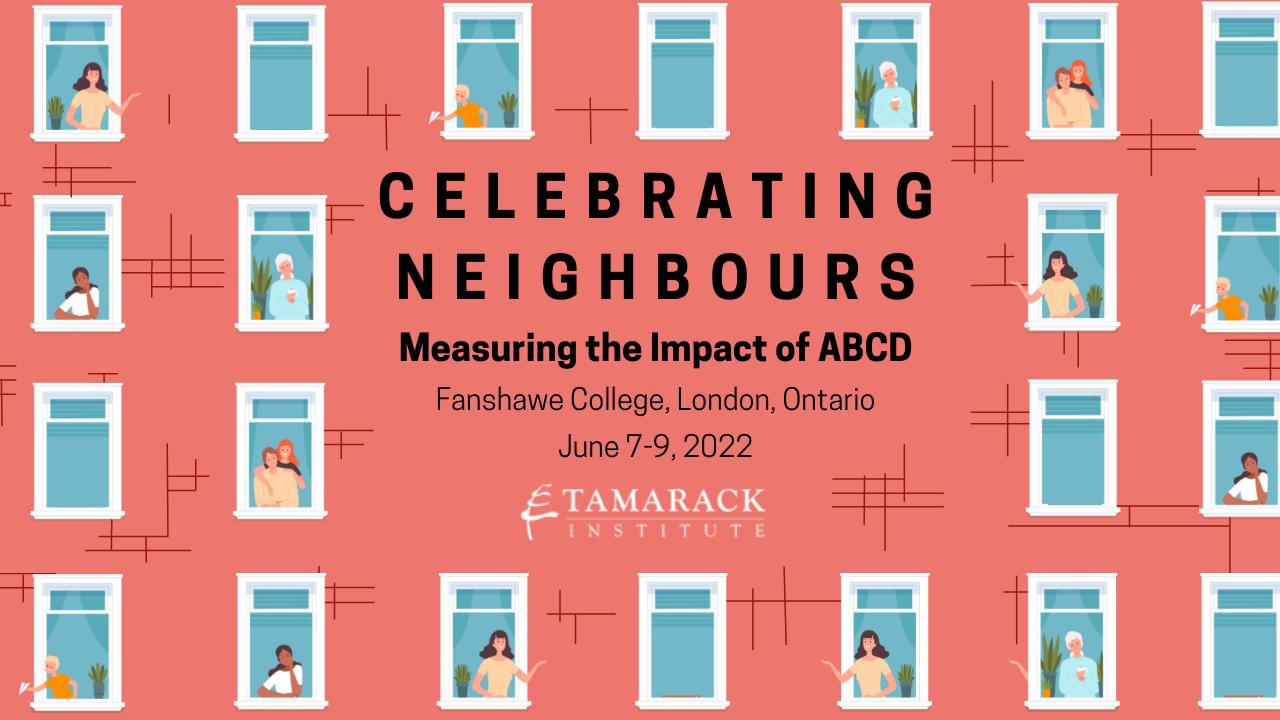There is a saying, “it’s not what you know, but who you know”. This is what is known as social capital, or the value of our social networks and connections in a community. Without social capital, people often experience a state of loneliness and a lack of belonging. As we reflect on a year of reduced social interactions due to COVID-19 restrictions, there is an opportunity to explore new ways to foster connection.
Social prescription is a movement, arising from the Social Determinants of Health, that helps individuals build social capital. It involves health care providers issuing a “social prescription” to connect individuals to activities led by local community groups. Whether it is group painting classes, coffee meetups, or cooking classes, these social activities have the intention of building a sense of belonging and connection as a substitute for traditional medical care.
On February 17th, the Tamarack Institute hosted a webinar highlighting how social prescription is taking place in Canada. During this webinar, Sonia Hsiung from the Alliance for Healthier Communities presented the results from a 2-year social prescribing research project that took place in 11 communities across Ontario. This pilot project was known as Rx: Social Prescribing and involved nearly 3,300 social prescriptions being issued across the province.
Stonegate Community Health Centre in Etobicoke Ontario was a one of the pilot projects. Stonegate is a health centre focused on providing services primarily to youth, newcomers and low-income seniors. This health-centre chose to become a partnering organization in the Rx: Social Prescription pilot project to tap into the gifts and assets that already exist within their community to increase a sense of belonging.
Enabling Health Champions
Stonegate’s approach towards social prescription was to build a team of “Health Champions”. These Health Champions were volunteer community members, staff or members from cultural groups that dedicated time to leading activities and often helped facilitate connections between participants. At Stonegate, those seeking social prescription services also had the opportunity to join as Health Champions. This was important for empowering community members to co-create the solution for themselves and others. Recognizing that people seeking help also have unique interests and gifts to offer was crucial for designing the activities. Many participants that joined as Health Champions felt an increased sense of purpose and connectedness, which led to a lower number of visits to clinics and physicians.
Here are some recommendations to build your own social prescription initiative:
- Forming a team - Build a core leadership team to support the planning process.
- Clarify roles - Outline social prescribing roles and responsibilities.
- Create a shared vision - Develop a shared vision and create a plan to establish the scope, purpose and objectives of your initiative.
- Collecting data - Focus on what data collection is required to track your impact.
- Inform - Provide education for individuals and groups on social prescribing, the implementation plan, and their role in identification and referral.
- Open communication - Connect with primary care providers and discuss their roles. They can help identify individuals who may benefit from social and community supports.
- Find the gifts of community - Asset mapping and partner engagement. Perform community asset mapping to understand existing assets in the community.
- Initiate social prescriptions - Health care providers should have a clear system for referrals, communication between healthcare professionals, and community groups to support individuals looking to access non-medical supports to enhance their wellbeing and social capital.
- Invite Health Champions - This stage involves empowering community members and creating a sense of community and belonging. These volunteer community members should incorporate a community-informed and asset-based approach.
The Rx: Social Prescription pilot project along with Stonegate Community Health Centre have laid the groundwork for what is possible across Canada. Social prescribing is gaining momentum among institutions and communities. This approach to building social capital uses shared activities to build on what is strong within individuals instead of focusing on deficits.
Are you interested in exploring ways to connect municipalities, organizations and community groups? Email me at dan@tamarackcommunity.ca if you are interested in talking about ways for community and institutions to build the case for initiatives such as social prescription.
Take Your Learning Further:
- Watch Innovative Approaches to Ending Social Isolation in Canada
- Watch Building Social Capital through Community Development
- Read Investing in Social Capital Pays Off During a Pandemic
- Learn more about the Rx: Social Prescription Report
- Find more resources and stories on the Cities Deepening Community website





